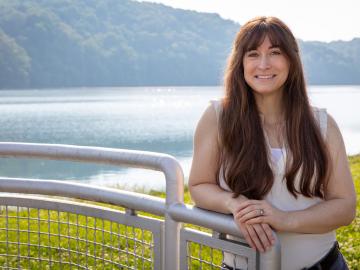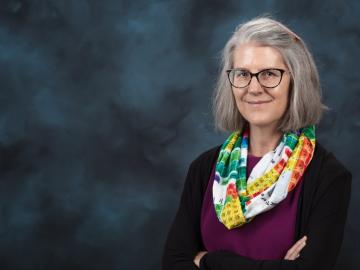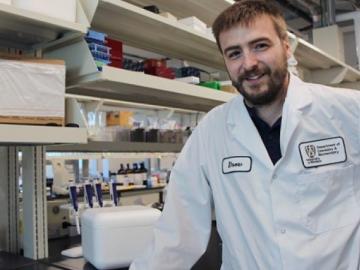
Filter News
Area of Research
- (-) Biology and Environment (31)
- (-) National Security (18)
- (-) Neutron Science (11)
- Computational Biology (1)
- Computer Science (1)
- Electricity and Smart Grid (1)
- Energy Science (38)
- Fusion and Fission (20)
- Fusion Energy (4)
- Isotopes (2)
- Materials (16)
- Materials for Computing (2)
- Nuclear Science and Technology (17)
- Quantum information Science (4)
- Supercomputing (29)
News Topics
- (-) Clean Water (10)
- (-) Coronavirus (10)
- (-) Grid (3)
- (-) Machine Learning (14)
- (-) Nuclear Energy (3)
- (-) Quantum Science (2)
- (-) Security (6)
- 3-D Printing/Advanced Manufacturing (5)
- Artificial Intelligence (14)
- Big Data (11)
- Bioenergy (30)
- Biology (47)
- Biomedical (17)
- Biotechnology (7)
- Buildings (1)
- Chemical Sciences (6)
- Composites (1)
- Computer Science (24)
- Cybersecurity (8)
- Energy Storage (4)
- Environment (62)
- Exascale Computing (4)
- Fossil Energy (1)
- Frontier (3)
- High-Performance Computing (16)
- Hydropower (6)
- Materials (7)
- Materials Science (10)
- Mathematics (3)
- Mercury (6)
- Microscopy (8)
- Nanotechnology (5)
- National Security (24)
- Neutron Science (54)
- Partnerships (2)
- Physics (2)
- Polymers (2)
- Quantum Computing (1)
- Simulation (9)
- Space Exploration (1)
- Summit (8)
- Transportation (1)
Media Contacts

Carly Hansen, a water resources engineer at Oak Ridge National Laboratory, is rethinking what’s possible for hydropower in the United States.

Deborah Frincke, one of the nation’s preeminent computer scientists and cybersecurity experts, serves as associate laboratory director of ORNL’s National Security Science Directorate. Credit: Carlos Jones/ORNL, U.S. Dept. of Energy

Twenty-seven ORNL researchers Zoomed into 11 middle schools across Tennessee during the annual Engineers Week in February. East Tennessee schools throughout Oak Ridge and Roane, Sevier, Blount and Loudon counties participated, with three West Tennessee schools joining in.

NellOne Therapeutics has licensed a drug delivery system from the Department of Energy’s Oak Ridge National Laboratory that is designed to transport therapeutics directly to cells infected by SARS-CoV-2, the virus causing COVID-19.

New capabilities and equipment recently installed at the Department of Energy’s Oak Ridge National Laboratory are bringing a creek right into the lab to advance understanding of mercury pollution and accelerate solutions.

Popular wisdom holds tall, fast-growing trees are best for biomass, but new research by two U.S. Department of Energy national laboratories reveals that is only part of the equation.

From materials science and earth system modeling to quantum information science and cybersecurity, experts in many fields run simulations and conduct experiments to collect the abundance of data necessary for scientific progress.

COVID-19 has upended nearly every aspect of our daily lives and forced us all to rethink how we can continue our work in a more physically isolated world.

Does vaping and smoking e-cigarettes put you at higher risk of COVID-19 complications? UWindsor’s Drew Marquardt is trying to answer that question with research into how the toxicants in the oils of vapes and e-cigarettes affect lung function.

Research by an international team led by Duke University and the Department of Energy’s Oak Ridge National Laboratory scientists could speed the way to safer rechargeable batteries for consumer electronics such as laptops and cellphones.


